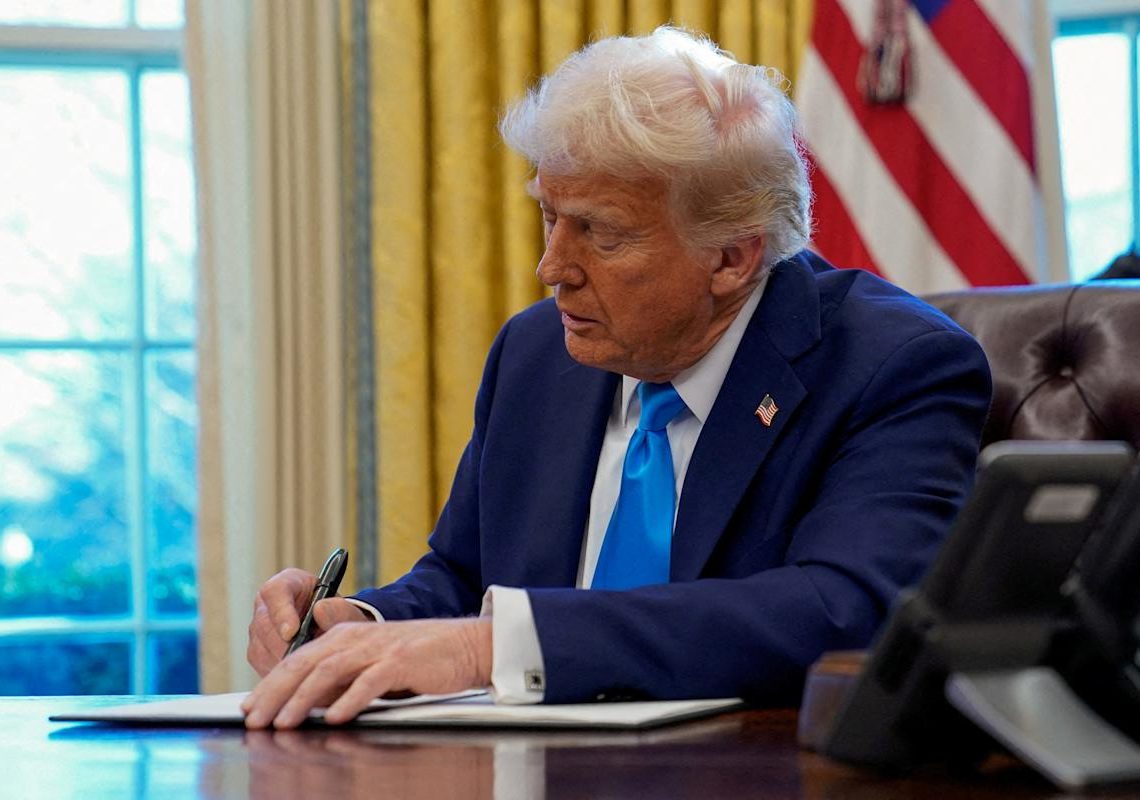WASHINGTON − Judges across the country have blocked some of President Donald Trump’s biggest policy changes − roadblocks the president has called “toxic and unprecedented.”
Trump is counting on the Supreme Court to fix that.
How inclined the justices might be to do so could become apparent on May 15 when the court considers Trump’s move to end automatic citizenship for children born in the United States regardless of whether their parents are citizens or permanent residents.
The president hasn’t asked the high court to consider the legality of his policy – which was called “blatantly unconstitutional” by the first judge to review it.
Instead, Trump wants the justices to narrow the scope of multiple court orders keeping his new rules on hold until the citizenship policy has been fully litigated.
The administration argues that, for now, Trump should be able to impose the change on everyone except the eighteen parents named in the lawsuits or, at most, any member of two immigrant rights groups or residents of a state that challenged the policy.
Unless court orders are narrowly tailored to only cover the actual litigants, the administration argues, judges will have too much power to stall crucial presidential actions.
“Years of experience have shown that the Executive Branch cannot properly perform its functions if any judge anywhere can enjoin every presidential action everywhere,” lawyers for the Justice Department told the Supreme Court in a filing.
Challengers call Trump’s position absurd
Those fighting the policy say if any case justified a nationwide pause, it’s this one.
The citizenship of the more than 150,000 babies born each year who could be affected by Trump’s executive order shouldn’t be determined based on which state they were born in and whether that state joined the lawsuits, said New Jersey Attorney General Matt Platkin, one of the attorneys general who has taken a lead on the issue.
“I’m confident the court will understand the absurdity of saying a child born in Pennsylvania or New Hampshire or Mississippi is somehow treated differently under the text of the 14th Amendment than a child born in New Jersey,” Platkin said. “That’s not what the Constitution says.”
Obama, Biden also faced national injunctions
Court orders that go beyond providing relief to those challenging a program or policy were rare until relatively recently, when they began to plague both Democratic and Republican presidents.
Legal scholars say that patten began in 2015 when Texas sued the Obama administration to stop an expansion of a program protecting young immigrants from deportation if they were brought to the U.S. illegally as children.
That was one of a dozen nationwide injunctions President Barack Obama faced during his presidency, according to a 2024 Harvard Law Review article.
President Joe Biden dealt with 14 through his first three years, including a Texas judge’s order blocking his requirement that federal workers be vaccinated for COVID-19.
Trump, however, faced 64 injunctions during his first term. And judges have been issuing injunctions at a pace to surpass that as the courts deal with the more than 200 lawsuits that have been filed against the administration.
Trump took to social media in March to demand that the Supreme Court intervene.
“If Justice Roberts and the United States Supreme Court do not fix this toxic and unprecedented situation IMMEDIATELY, our Country is in very serious trouble!” Trump said in a Truth Social post.
Courts are reacting to unusual situation
While there are legitimate criticisms of one judge’s ability to pause universal application of a policy, the situation courts are currently reacting to is unusual, said Alan Trammell, a leading authority on universal injunctions who teaches at Washington and Lee University School of Law.
It’s not normal, Trammell said at a recent conference sponsored by the Federalist Society, for the president to try to rewrite the citizenship clause of the Constitution “and upend jurisprudence that’s existed for more than a century.”
“That’s the context in which we are talking about all this,” he said.
But Samuel Bray, an expert on injunctions who teaches at Notre Dame Law School, argues that because Trump’s executive order is “flagrantly illegal,” the justices won’t get sidetracked by the underlying debate about the order’s constitutionality.
“And that means this case is one that will allow the court to decide the scope of injunctions that can be given by federal courts,” he said. “It lets the Supreme Court clearly tackle this question about the proper role of courts.”
Some justices criticize national injunctions
Some Supreme Court justices have expressed displeasure with universal injunctions, especially Justice Neil Gorsuch, one of the court’s six conservative justices.
Five years ago, Gorsuch called them “unworkable” and said it’s become apparent his colleagues must address them.
“The real problem here is the increasingly common practice of trial courts ordering relief that transcends the cases before them,” he wrote in 2020 when the court blocked an injunction against a Trump-era immigration policy.
During public remarks in 2022, Justice Elena Kagan – one of the court’s three liberal justices − spoke out against sweeping injunctions and the ability of challengers to find one friendly judge to issue such an order.
“In the Trump years, people used to go to the Northern District of California, and in the Biden years, they go to Texas,” she said. “It just can’t be right that one district judge can stop a nationwide policy in its tracks and leave it stopped for the years that it takes to go through the normal process.”
But despite the concern, the justices declined at the end of the Biden administration to take up the Justice Department’s request to address the issue after a Texas judge blocked an anti-money laundering law.
The lower courts “need guidance on the propriety of universal injunctions,” Elizabeth Prelogar, Biden’s solicitor general, told the justices.
How might the Supreme Court rule?
The fact that the high court chose this case to discuss universal injunctions could mean a majority want to reaffirm their use, said Ilya Somin, a law professor at George Mason University.
“I would have thought that the faction that wants to end universal injunctions would have preferred a less sympathetic case to do that in,” he said.
The whole point of having a naturalization clause in the Constitution is set a uniform citizenship rule for the entire nation, he said.
“If they were to reject universal injunctions in this case,” he said, “it would be hard to do it in a way that wouldn’t also reject it in most, if not all, other cases.”
But Bray, the scholar at Notre Dame University, thinks the court will find a way to restrict or eliminate universal injunctions while also indicating that birthright citizenship is settled law.
While that could mean those challenging the change would have to use a different approach, such as filing a class action lawsuit, Bray said that could be done quickly enough to avoid different rules applying in different parts of the country.
“I don’t think you’re going to have a patchwork for very long at all,” he said, “because the legal question on the merits is so clear.”
This article originally appeared on USA TODAY: Trump uses Supreme Court birthright case in bid to curb judges’ reach
The post Trump uses Supreme Court birthright citizenship case in bid to limit judges’ power appeared first on USA TODAY.




